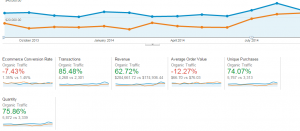Ryan Holiday joined us at work in June 2020 to discuss The Obstacle is the Way, life after COVID-19, and other tips for success. We got to spend around 45 minutes listening to a lecture from him followed by Q&A. My notes are below.
In life we don’t control what happens but we do control how we respond.
Accept reality unflinchingly. Accept that you have a lot of power over everything else.
Bad companies are destroyed by crisis. Good companies are muddled by crisis. Great companies are improved by crisis.
Andy Grove
Two main reasons for his success:
1. Develop mentors – find people who have done what you want to do. Attach yourself to them. Put up with anything. Do any job. Play any role to get into a position to learn from them.
2. Read widely and learn from history and those who have gone before you.
Most people have been doing modern marketing for 150 years. Tactics change but you can learn a ton from people like David Ogilvy in 2020. People focus too much on tactics instead of principles.
Paid media can be boring and earned media has to be interesting. Do things that are so interesting that others want to share them. Boring media is expensive.
As the world becomes crazy, it necessitates normal order within ourselves. If you have more time on your hands, use it to create more order and structure. Structure creates presence and focus.
We tend to think of obstacles as one-time occurrences. The reality is more of Murphy’s Law, we are always bouncing into new problems each day.
Obstacles are bigger in our imagination than they often are in reality.
His morning routine: wakes up early and first thing he does is avoid phone for a minimum of three hours. Don’t let outside noise interfere with your day.
Make before you manage.
Tim Ferriss
Do your most important thing of the day first before you get sucked into the world.
If you put off the things that require focus, concentration, and clarity, you have a million excuses to not do it later in the day.
Stillness is primarily about owning the morning.
Stoicism isn’t the absence of emotion, it is the absence of destructive emotion.
You pick each day if you want to have alive time or dead time. Dead time: Sit back and watch time tick away. Alive time: you do everything you can to be successful. You can waste years as Dead Time.
Are you using your days or are you watching them waste away?
Ryan Holiday’s 2020 Book Recommendations
- David Epstein’s Range
- Cal Newport’s Deep Work
- Cheryl Strayed’s Tiny Beautiful Things

















